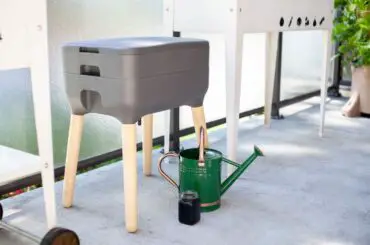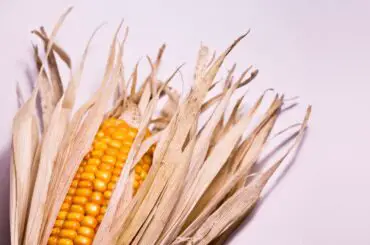The best way to get rid of dust is to vacuum regularly and clean your house from top to bottom. But what do you do with the vacuum dust? Can you compost vacuum dust?
Of course, you can compost vacuum dust. I had this problem for years. I usually bury vacuum dust in my garden. But it is not an easy thing to do. Therefore I looked for a solution and I was surprised to vacuum dust is compostable. However, there are a few things you should know before you do. In this article, I am going to explain how to do it in detail. Let’s dig in.
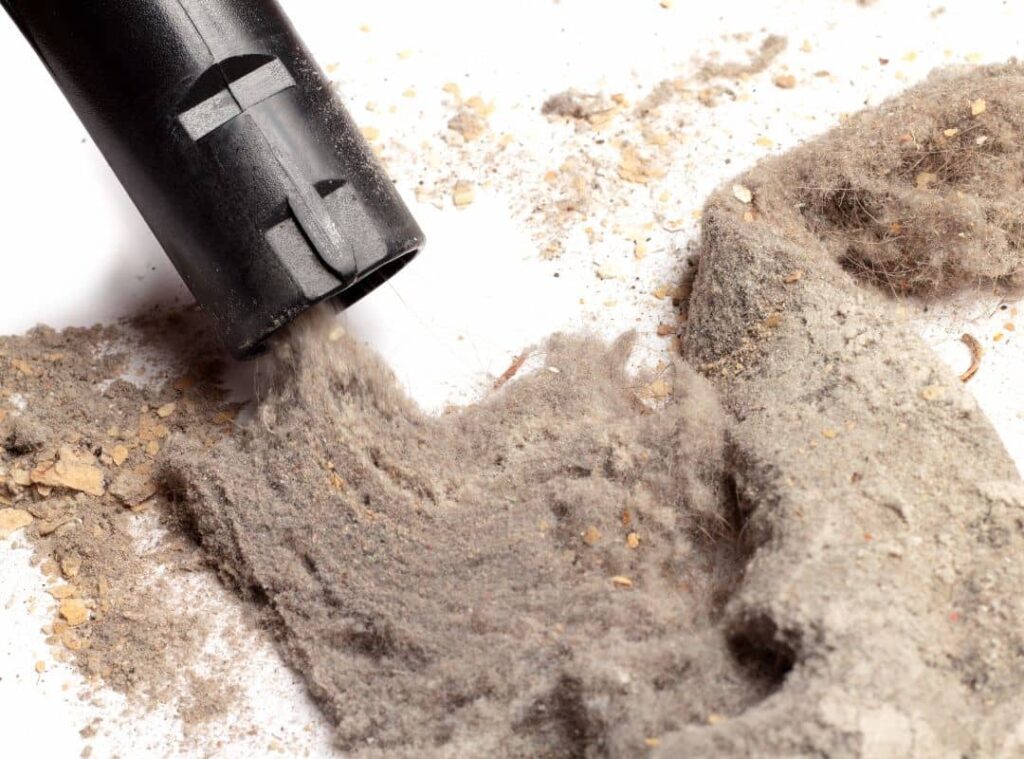
What Is Vacuum Dust?
Contents
- 1 What Is Vacuum Dust?
- 2 Can You Compost Vacuum Dust?
- 3 How to Compost Vacuum Dust
- 4 Can You Compost Vacuum Lint?
- 5 What if you use chemicals while cleaning?
- 6 Where Do You Put Vacuum Dust?
- 7 Can Dust Be Recycled?
- 8 Do Indoor Plants Reduce Dust?
- 9 Can You Flush Vacuum Dust Down The Toilet?
- 10 Is Dust Bad For Plants?
- 11 Non-Compostable Waste
- 12 Conclusion on can you compost vacuum dust?
- 13 Related question
Vacuum dust is made up of a variety of things, including:
- Human skin cells
- Pet hair
- Dust mites
- Pollen
- textile fibers
In other words, it’s a mixture of organic and inorganic materials.
Can You Compost Vacuum Dust?
As you clean your house, it’s natural for you to want to throw the vacuum dust in the compost bin. After all, it is organic matter (sort of). But this is not something you should do without the proper know-how. Confused? Let me explain. As we mentioned above, compost dust is made of a variety of things, including organic matter like skin cells, cobwebs, and dust mites. But it also contains inorganic matter like synthetic fiber from your carpet.
When you compost, the organic matter breaks down and becomes nutrient-rich soil that can be used to fertilize plants. But the inorganic matter does not break down. An inorganic matter like synthetic fiber takes hundreds of years to break down.
So, if you were to compost vacuum dust without removing the inorganic matter, it would just sit in your compost bin, taking up space. However, if you are sure that you vacuumed organic matter only, then you can safely compost it. The best way to compost vacuum dust is to remove the inorganic matter first. This can be done by using a simple strainer. ( but this is not the recommended way of getting rid of your vacuum dust.)
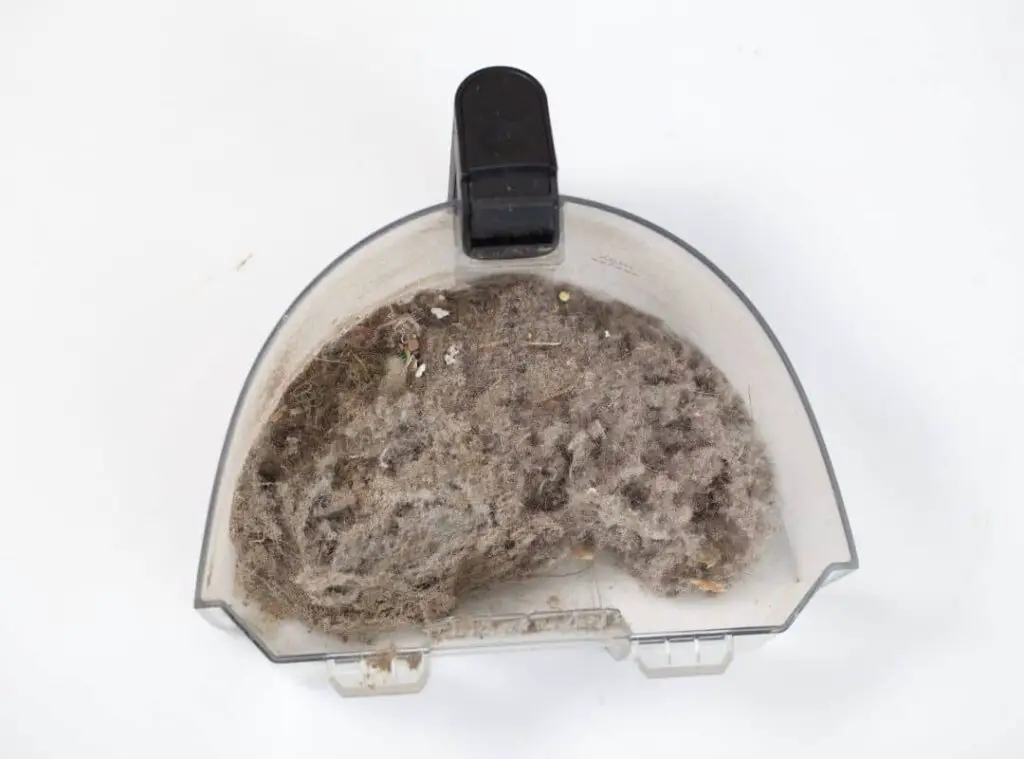
How to Compost Vacuum Dust
Here’s a step-by-step guide to composting vacuum dust:
- Start by thoroughly vacuuming your house. Make sure to get all the nooks and crannies.
- Next, using a strainer, sift through the vacuum dust to remove any inorganic matter.
- Once you have removed the inorganic matter, add the vacuum dust to your compost bin.
- Add other organic matter to the bin, such as food scraps and garden waste.
- Turn the compost regularly to aerate it and help the decomposition process.
- After a few weeks, you should have nutrient-rich compost that’s ready to use.
Caution: If you are an asthma patient or have any other respiratory problems, it is best to avoid composting vacuum dust. When sifting with a strainer, the dust can aggravate your condition.
As an alternative option, you can put the vacuum dust on the compost bin and water it so that the dust will mix with the compost bin and inorganic materials remain on the top. After some time, you can carefully remove the inorganic materials. Note that this is not a sure-fire way to compost 100 percent of the vacuum dust. Some inorganic materials will still end up in the compost.
When in doubt, it’s always best to err on the side of caution and dispose of the vacuum dust in the trash.
Can You Compost Vacuum Lint?
The answer depends on the material it is made of. If your vacuum lint is made of organic fabric waste, it can be composted. If it is made of synthetic materials like polyester, it cannot be composted. But luckily, most vacuum lint is made of organic materials. So, rest assured that you can compost your vacuum lint.
But, there are things you must consider. During cleaning, you may end up collecting inorganic material like synthetic fiber in your vacuum lint. If that happens, the fiber may stick into the vacuum lint, making it difficult to remove. If you see any inorganic material in your vacuum lint, it is best to dispose of it in the trash.
However, suppose you only pick up organic material like dust, pet fur, human hair, skin flakes, and other types of debris during cleaning. In that case, this organic waste, including your vacuum lint, can go into the compost bin.
Composting vacuum lint is easy. What you need to do is add it to your compost bin along with other organic waste. You can also chop up the lint into smaller pieces to speed up the composting process. Just make sure that you turn the compost regularly to aerate it and help with the decomposition process. After a few weeks, you should have nutrient-rich compost that’s ready to use.
Important: Asthma patients and people with respiratory problems should avoid composting vacuum lint. The dust can aggravate your condition. If you must compost it, wear a dust mask to avoid inhaling the dust.
As an alternative, you can put the vacuum lint in a container and add water to it. Stir the lint mixture and allow it to sit for a few days. The lint will disintegrate, and the water will turn brown. This mixture can be used as a natural fertilizer for your plants.
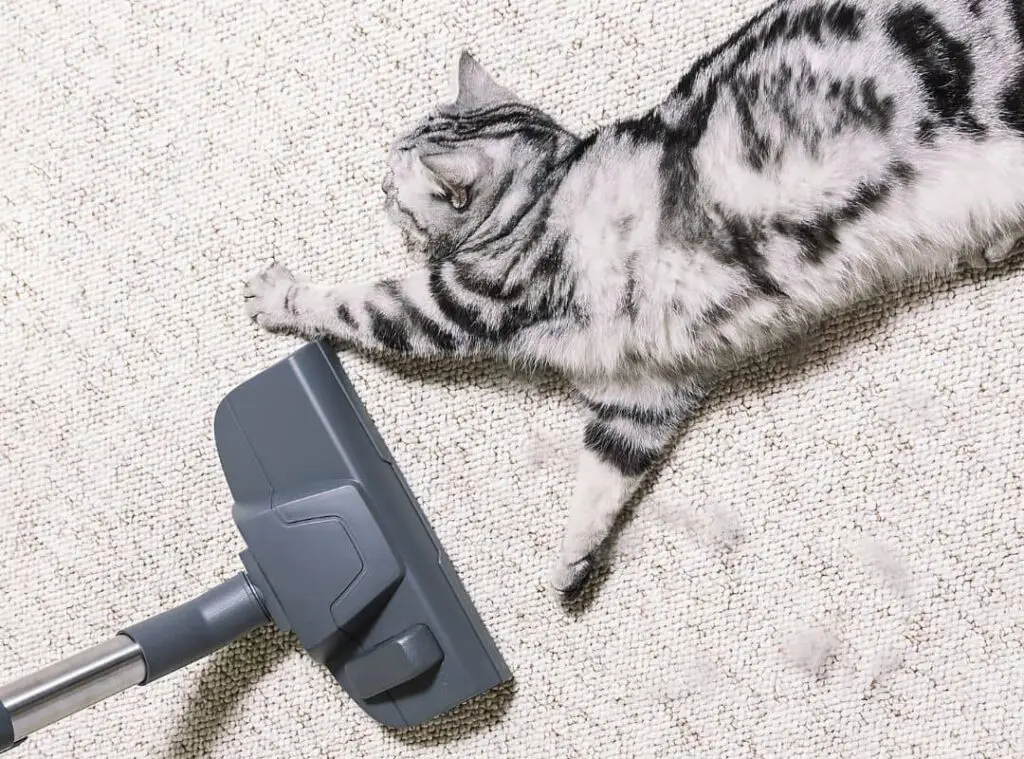
What if you use chemicals while cleaning?
If you used chemicals like air fresheners and carpet cleaners during the cleaning process, you could not compost vacuum dust or vacuum lint. Chemicals are neither compostable, organic, or biodegradable in any way. If you try to compost chemically tainted vacuum cleaner lint or dust, you endanger the environment of your compost bin.
Using chemicals during cleaning can have harmful consequences for the compost soil. The chemicals kill the microorganisms that would normally break the organic materials down, so the chemicals can make the compost soil unproductive. If these chemicals end up in a body of water, they can be polluted and harm all aquatic organisms. In short, if you use chemicals while cleaning, make sure to dispose of the vacuum lint and dust in the trash. Do not put it in the compost bin.
Where Do You Put Vacuum Dust?
If you have read from the beginning of this article, you must now know that you should put the vacuum dust into the trash can if the dust contains inorganic materials. However, we usually can’t be sure that what we clean up is purely organic. Usually, we clean every bit of dirt we see without knowing what it is made of.
So, to be on the safe side, it is best to put all the vacuum dust in the trash. This way, you can avoid contaminating your compost bin with inorganic materials that can harm the microorganisms and make the compost soil unproductive.
Can Dust Be Recycled?
Unfortunately, dust can not be recycled. This is because dust is considered a waste material containing a mix of different materials like dirt, hair, fibers, and other small particles. Since dust is a waste material, it can not be separated and recycled into its individual parts. The only way to get rid of dust is to either throw it away in the trash or vacuum it up and dispose of it in the trash.
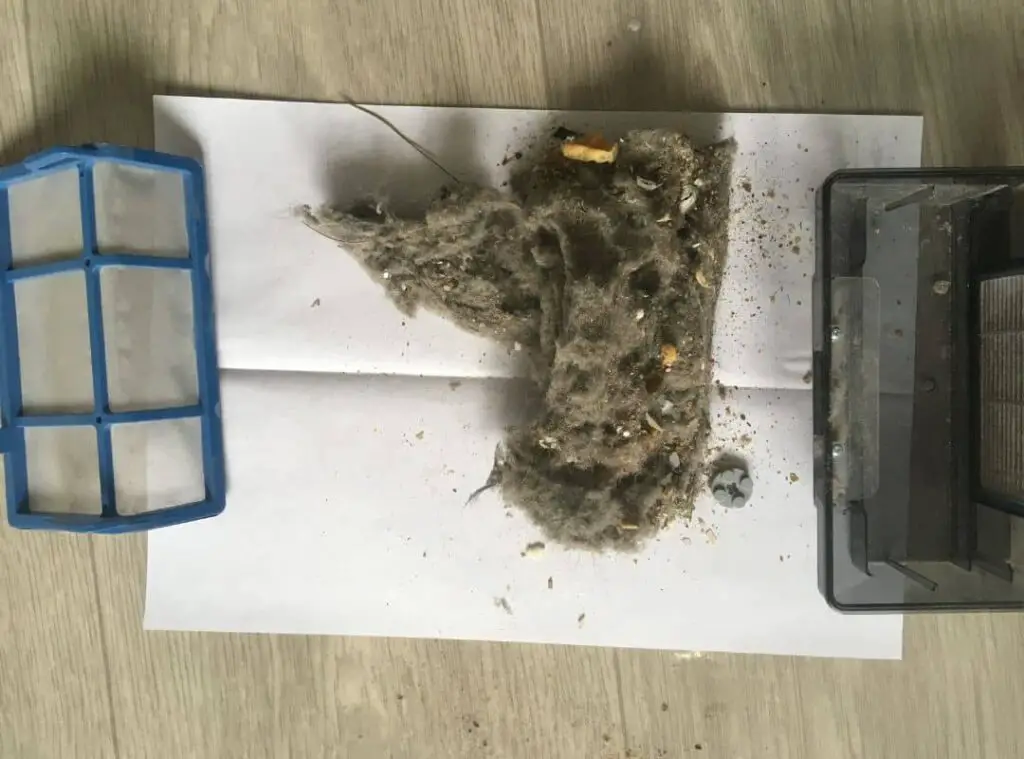
Do Indoor Plants Reduce Dust?
Yes, indoor plants can help reduce dust in your home. Houseplants can help reduce the amount of dust in your home by trapping the dust particles in their leaves. Some of the best plants for this job are Hoyas, philodendrons, anthuriums, water lilies, etc. Having a few plants around can make a big difference in the quality of air in your home. Not only will you be able to breathe easier, but you will also be helping to keep your surroundings healthy.
Can You Flush Vacuum Dust Down The Toilet?
No. You shouldn’t try to flush vacuum dust down the toilet because it can clog the pipes. Even if the vacuum dust is organic, it can still cause problems because it will mix with the sewage and create a sludge that can clog the pipes. So, it’s best to just dispose of vacuum dust in the trash.
Is Dust Bad For Plants?
Dust can be bad for plants for a few reasons. One of the reasons is that dust clogs the tiny pores on the leaves, preventing them from receiving adequate sunshine, and resulting in the plant’s death. Another reason is that the dust can contain harmful chemicals that can damage or even kill the plant. So if you have a lot of dust in your environment, it’s important to reduce it so your plants can thrive.
Non-Compostable Waste
Now that you know vacuum dust with inorganic materials like synthetic fiber or chemicals can’t be composted, you might wonder what else can’t be composted. Here is a list of non-compostable waste:
- Plastic
- Glass
- Metals
- Synthetic fibers
- Chemicals
- Paper (if it has been treated with chemicals)
- Any waste that contains harmful bacteria or viruses
- Meat and fish scraps
- Dairy products
- Pet waste
- Human Waste
As you can see, quite a few things can’t be composted. These include things that do not break down easily, things that tend to rot easily, and things that contain chemicals. There are some other things that can’t be composted, but these are the most common.
Now that you know what can and can’t be composted, you can make sure to put the right things in your compost bin. By doing this, you will be able to create nutrient-rich compost soil that will be perfect for your plants.
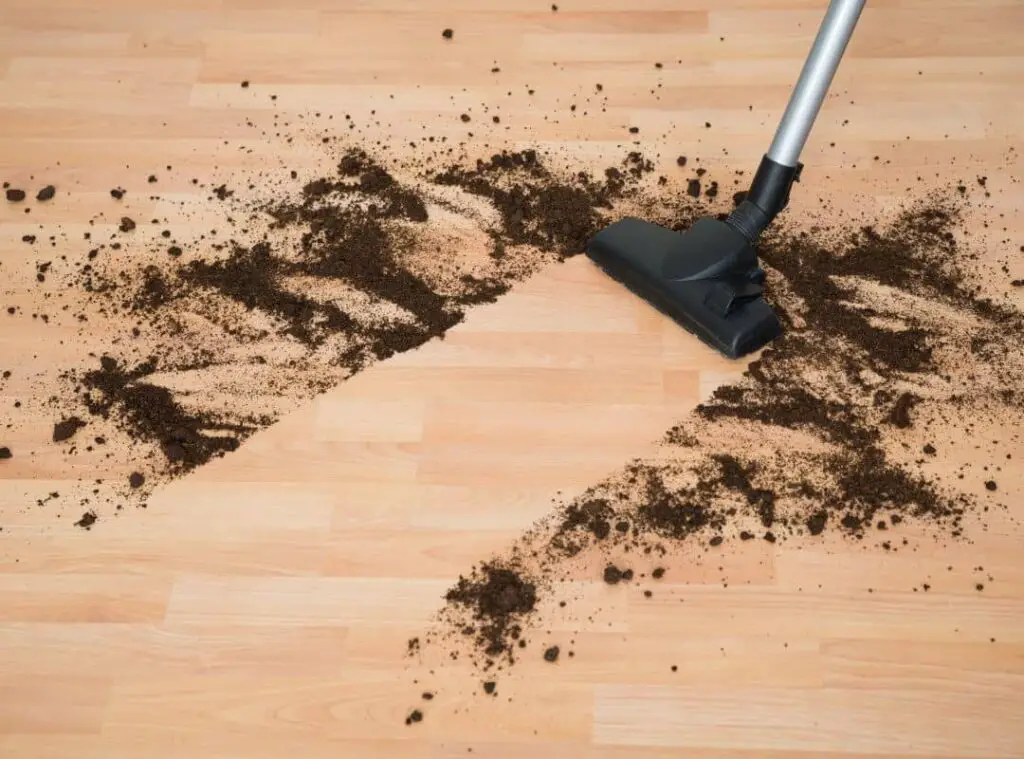
Conclusion on can you compost vacuum dust?
Although composting whatever we can is good for the environment, we can not compost everything we find in our homes. Some materials can contain harmful chemicals to the microorganisms in the compost bin, and some others may not compost at all. You can not compost vacuum dust and vacuum lint because they can contain harmful chemicals and inorganic materials. Throwing them away in the trash is the best approach to get rid of them.
You might find it useful to keep a separate bin for compostable and non-compostable waste so you can readily distinguish between the two. By knowing what can and can’t be composted, you can make sure only to put the right things in your compost bin. This will help you create nutrient-rich compost soil that will be perfect for your plants.
Related question
How do I dispose of a vacuum cleaner?
You can dispose of a vacuum cleaner by taking it to a recycling center or by giving it to a scrapyard. Alternatively, you can sell it to give it a new life. You can also donate it to a thrift store or an organization accepting used appliances.
What happens if you leave the compost for a long period of time?
If you leave the compost too long, it will become dry and crumbly. This is because the microorganisms have used up all of the available moisture and nutrients. The compost will still be safe to use, but it will be less effective.
Read Next : Mushroom Compost : Not Just for Mushrooms Anymore!

